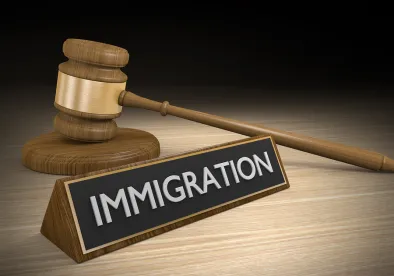Since our last update a week ago, additional and significant immigration developments have taken place in the U.S. and around the world and continue to change. With such fluidity of country and border closures, closures of embassies and consulates around the world, and now U.S. Citizen and Immigration Services (USCIS) offices, we are providing links to government websites where you can find the most updated information on these important immigration and global mobility issues affecting companies in the U.S. and around the world. Reports on March 19, 2020, also indicate that the State Department will be announcing a Level 4 travel advisory applying to all international travel. It is expected that this announcement will tell Americans that they must remain in the U.S., and Americans also would be instructed not to travel abroad. We will update you as more information is released, and please continually review the State Department’s website for further details and instructions.
U.S. Travel Ban
Effective March 13, 2020, at 11:59 ET, USCIS suspended and limited entry to the U.S. (with some exceptions) of all immigrants and nonimmigrants who were physically present in the Schengen area during the 14-day period preceding their entry or attempted entry into the U.S. Although the United Kingdom and Ireland were initially excluded from this ban, they were added over the weekend with an effective date of Monday, March 16, 2020, at 11:59 ET. As with the initial announcement last week, this travel ban does not apply to U.S. citizens and lawful permanent residents and additional exceptions outlined last week and noted in our initial update. Those individuals allowed to come into the U.S. from the countries in Europe must be admitted through the following airports with additional screening procedures taking place:
- Dallas Fort Worth International Airport
- Detroit Metropolitan Airport
- Newark Liberty International Airport
- Honolulu’s Daniel K. Inouye International Airport
- New York JFK
- Los Angeles International Airport
- Chicago O’Hare International Airport
- Seattle-Tacoma International Airport
- San Francisco International Airport
- Washington-Dulles International Airport
- Boston Logan International Airport
- Miami International Airport
- Atlanta Hartsfield Jackson International Airport
Individuals returning from these countries must also self-quarantine for 14 days.
On March 18, 2020, President Trump announced that the U.S. and Canada will jointly close the northern border to “non-essential” travel with additional details to follow. He stated that trade will not be affected. There are also reports that southern borders may also close. Again, these issues are fluid and changing very quickly.
For updated and continued information, please see the following links:
- White House Presidential Proclamations
- Department of Homeland Security
- U.S. Customs and Border Protection
USCIS Office Closures
Effective March 18, 2020, USCIS has announced that it is suspending in-person services at its field offices, asylum offices and Application Support Centers (ASCs) to help stop the spread of the coronavirus. This suspension will last until at least April 1. USCIS will provide limited emergency service, and the USCIS contact center should be used. This includes online assistance or calling + 1 800 375 5283. USCIS will send new notices for rescheduled dates and times once USCIS resumes normal operations. Please note that this closure notice involves USCIS field offices. To date, there has been no closing of any USCIS Service Centers or USCIS Headquarters. USCIS recently announced an initial suspension to premium processing for H-1B cap petitions. However, this has frequently happened in the past with H-1B cap cases so there is no indication that this initial suspension has anything to do with the coronavirus or expected shutdown or closures with USCIS. In this announcement, USCIS has indicated that premium processing will start for U.S. master’s cap cases on May 27, 2020, and all other regular cap cases on June 29, 2020. With H-1B cap electronic registration closing on Friday, March 20 at 11:59 a.m. ET, we will continue to provide updates on this year’s H-1B cap process in the coming weeks.
For updated and continued information, please see the following links:
- U.S. Citizenship and Immigration Services
- USCIS Response to the Coronavirus Disease 2019
- USCIS Announces Temporary Suspension of Premium Processing for FY2021 Cap-Subject Petitions
U.S. Embassy and Consulate Closures
Starting with the U.S. embassies and consulates in Europe and spreading to India, Brazil, Mexico and others, most (if not all) U.S. embassies and consulates around the world are closed, and nonimmigrant and immigrant visa services will be suspended. Emergency services will only be operational. For more information, visit:
- State Department information on Current Outbreak of Coronavirus Disease 2019
- State Department Country Specific Information
- NAFSA tracking of U.S. visa and entry restrictions related to COVID-19
- State Department Coronavirus Disease 2019 information
ESTA Cancellations
The Visa Waiver Program (VWP) permits citizens of 39 countries 1 to travel to the United States for tourism or business visits of up to 90 days without a visa. Reciprocally, those 39 countries have similar programs for U.S. citizens.
In order to apply for entry to the United States, the individual must hold an electronic passport with a digital chip and must have submitted and had approved prior to travel the Electronic System for Travel Authorization (ESTA) form online.
For individuals currently subject to the restrictions to entering the United States as the result of coronavirus (e.g., those who have been within a Schengen country within the 14 days prior to travel to the United States), those individuals will have their ESTA canceled if they attempt to travel to the United States in violation of these restrictions.
Any individuals subject to the restrictions with a flight booked to the United States should consider canceling or rebooking their flights for a later date. Some airlines submit their APIS manifests 30-60 minutes ahead of the flight for clearance by CBP and others submit their manifests in real time as passengers check in for their flight. However, data transmissions may start up to 72 hours prior to flight departure. As such, individuals planning to cancel or rebook flights should consider doing so more than 72 hours prior to departure for the United States to minimize the possibility of the cancellation of their ESTA.
We understand that, at the present time, ESTA revocations for the above reason are considered to be without prejudice. This means that those travelers should still be able to apply for a new ESTA in the future.
USCIS Suspensions/Extensions Based on Extraordinary Circumstances
There are reports that some CBP secondary inspection offices (Newark and JFK) have permitted VWP/ESTA holders who cannot depart timely to remain for 30 days under satisfactory departure for up to 30 days under 8 C.F.R. 217.39(a). These offices will permit a request for satisfactory departure if the period of stay will expire within 14 days or less. If already expired, these CBP offices will review on a case by case basis. To request satisfactory departure, the JFK CBP inspection office can be reached at +1 718 553 3683 or +1 718 553 3684. We also just received information that the Minneapolis (MSP) and Chicago offices have announced that they will also grant such satisfactory departure requests. MSP CBP will only grant for hospital or quarantine issues or due to flight cancellations. It will not consider the request for fear of traveling due to the coronavirus. Chicago is not as restrictive as Minneapolis with such a request. MSP CBP can be reached at i94msp@cbp.dhs.gov and Chicago can be reached at i94chi@cbp.dhs.gov. The officers responding to the email will further direct the applicant.
In addition to the above, USCIS is being requested to extend expiring status for a limited period because of this extraordinary situation as well as to extend timing deadlines for petitions, Request for Evidence (RFE) response filings, and other requests and applications. We have not received information from the American Immigration Lawyers Association or others on whether USCIS will allow for such requests or implement special relief for foreign nationals working or studying in the U.S.
F-1/J-1 Student Updates
ICE recently updated its COVID-19 guidance for F-1 and J-1 students and schools stating that: “SEVP intends to be flexible with temporary adaptations. In all cases, schools and students should document any decisions made and be able to provide this information to SEVP upon request.”
The ICE FAQ provides responses to specific scenarios.
Additionally, NAFSA: Association of International Educators is also pressing ICE to make additional accommodations with the coronavirus, including:
- Implementing special relief for students during this time
- Accepting benefit requests outside normal windows of time, including F-1 Optional Practical Training
- Allowing F-1/J-1 students to reenter based on SEVIS record and without an updated or travel-endorsed I-20
- Flexibility in school reporting requirements
- Don’t count time spent unemployed for F-1 OPT or F-1 STEM OPT during COVID-19 emergency
Here is the CDC’s response to NAFSA’s coronavirus questions.
Entry Requirements for Other Countries
This revised table shows entry requirements for many countries. Keep in mind that these restrictions are being updated minute by minute so please check country-specific requirements before traveling.
Conclusion
All issues pertaining to the coronavirus are changing minute by minute — including immigration and mobility issues and challenges for employers and foreign national employees in the U.S. and around the world. There continue to be many open questions with immigration issues including additional closures for USCIS or the Department of Labor (DOL), whether USCIS will extend expirations of paperwork or extend status, make the I-9 rules more lenient for remote work during this challenging time, etc. We will continue to provide updates on these important and constantly changing immigration issues.
- Andorra, Australia, Austria, Belgium, Brunei, Chile, Czech Republic, Denmark, Estonia, Finland, France, Germany, Greece, Hungary, Iceland, Ireland, Italy, Japan, Republic of Korea, Latvia, Liechtenstein, Lithuania, Luxembourg, Malta, Monaco, Netherlands, New Zealand, Norway, Poland, Portugal, San Marino, Singapore, Slovakia, Slovenia, Spain, Sweden, Switzerland, Taiwan, United Kingdom.







 />i
/>i
